
This is the third annual survey to find what you recommend for those preparing for the ASQ CRE exam.
As a reliability engineer, you may have wondered which references are the most useful. Or as an accomplished CRE you may have been asked for recommendations. Either way, thanks for contributing to the:
Annual ASQ CRE Exam Recommended References Survey
2017 Survey Results and Discussion
The Typeform powered survey open in December 2016 enjoyed 30 unique visits and while not everyone completed the survey, we did get many responses. Average response time was 3 minutes and 20 seconds, which was twice as long as expected. Thanks for putting some thought into your responses.
You can view the results as produced by Typeform and the collected details here. Below is a summary and some comments.
Unnecessary to Essential Scoring
The first set of questions as you to rank five references as from 1. Unnecessary to 5. Essential. In short which references do you plan to take with you (or recommend) for the exam.
The CRE Primer from the Quality Council of Indiana and The Certified Reliability Handbook, 2nd Ed by Benbow & Broome with an 4.10 and 4.07 average score, respectively top the list of recommended references.
A good statistics textbook and the Practical Reliability Engineering by O’Connor and Kleyner with average scores of 3.93 and 3.72, respectively, are our collective third and fourth recommendations.
Practical Relaibility Engineering dropped from the top recommendation in 2015 to fourth.
Juran’s Quality Handbook with an average score of 3.00 was not seen as essential.
Score Reference
4.10 CRE Primer
4.07 The Certified Reliability Engineer Handbook
3.93 a good statistics textbook
3.72 Practical Reliability Engineering
Recommendations to Drop
The next question asked which of the five references should be dropped from the list. In short, which would you not recommend?
Just under half of the respondents listed a title to drop. In order of frequency they are:
55% Juran’s Quality Handbook
17% none
17% The Certified Reliability Engineer Handbook
6% A good statistics book
6% Practical Reliability Engineering
One person listed Reliability Engineering 3nd by Elsayed (not on list, so this might be a recommendation)
If there is a clear consensus to add a reference we’ll drop Juran’s from the list. The recommendations seem to suggest if you have a copy, that is a great, if not, don’t worry about it.
Recommendations to Add
This question enjoy responses, sometimes multiple responses, by nearly two thirds of respondents. We do like our references. Here are the recommended additions to the reference list in order of frequency of mention:
16% Nothing
16% CRE Primer
11% CRE Handbook by Benbow & Broome [ed. full title is The Certified Reliability Engineer Handbook, 2nd edition – now in it’s 3rd edition ]
And one person each recommended adding the following:
Practical Engineering, Process, and Reliability Statistics by Durivage
Reliability Engineering Handbook, v 1 & 2, by Dimitri
Reliability Statistics by Dovich
Introduction to Reliability and Maintainability Engineering by Charles E. Ebeling
Reliability Engineering Handbook by Dodson
Reliability Handbook by Ebeling
Juran’s Quality Handbook
Reliability Toolkit by RAC
Practical Statistical Tools for the Reliability Engineer by RAC
One person recommended a discussion forum – which the LinkedIn Group CRE Preparation group may serve this function.
Based on the survey we will not add anything to the recommended list.
Thanks to all that participated in the survey.
2015 Survey Results and Discussion
The Typeform powered survey open in December 2015 enjoyed 78 unique visits and while not everyone completed the survey, we did get many responses. Average response time was 2 minutes and 47 seconds, which was twice as long as expected. Thanks for putting some thought into your responses.
Unnecessary to Essential Scoring
The first set of questions as you to rank five references as from 1. Unnecessary to 5. Essential. In short which references do you plan to take with you (or recommend) for the exam.
The CRE Primer from the Quality Council of Indiana and Practical Reliability Engineering by O’Conor & Kleyner with an 4.08 and 4.09 average score, respectively top the list or recommended references.
A good statistics textbook and the Handbook of Reliability Engineering and Management with average scores of 3.50 and 3.36, respectively, are our collective third and fourth recommendations.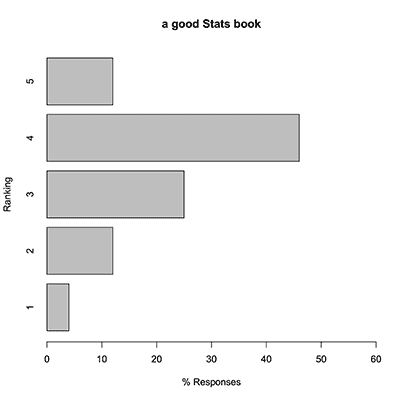
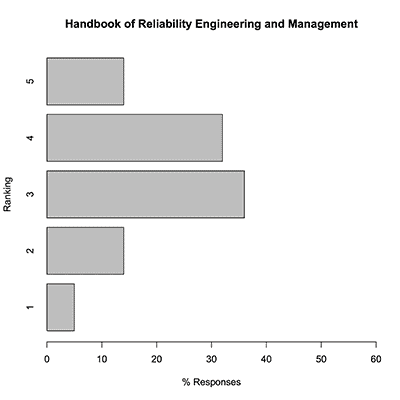
Juran’s Quality Handbook with an average score of 2.83 was not seen as essential.
Score Reference
4.09 Practical Reliability Engineering
4.08 CRE Primer
3.50 a good statistics textbook
3.36 Handbook of Reliability Engineering and Management
Recommendations to Drop
The next question asked which of the five references should be dropped from the list. In short, which would you not recommend?
Just under half of the respondents listed a title to drop. In order of frequency they are:
17% Handbook of Reliability Engineering and Management
8% none
8% CRE Primer
4% A good statistics book
4% Applied Reliability by Tobias (not on list, so this might be a recommendation)
In general, it appears the older text, 2nd edition published in 1996, the Handbook of Reliability Engineering and Management is not highly recommended. Reluctantly, I’ll drop it from the list. It was my first general book on reliability engineering and I knew and worked with one of the authors (Dick Moss).
Recommendations to Add
This question enjoy responses, sometimes multiple responses, by nearly two thirds of respondents. We do like our references. Here are the recommended additions to the reference list in order of frequency of mention:
12% CRE Handbook by Benbow & Broome [ed. full title is The Certified Reliability Engineer Handbook, 2nd edition]
8% Reliability Statistics by Dovich
And one person each recommended adding the following:
Practical Engineering, Process, and Reliability Statistics by Durivage
Reliability Engineering Handbook, v 1 & 2, by Dimitri
Weibull [ed. maybe? The New Weibull Analysis Handbook by Abernathy]
Some book on PoF [ed. any recommendations here?]
Applied Reliability by Tobias and Trindade
Design for Reliability by Crowe & Feinberg
How to Analyze Reliability Data by Nelson
One person commented that the list was good and recommended using one book’s index for all the references. Just add the other book’s page numbers for each index listing in pencil.
Based on the survey we will add The Certified Reliability Engineer Handbook, 2nd edition to the recommended list.
Thanks to all that participated in the survey.
[/show_to]
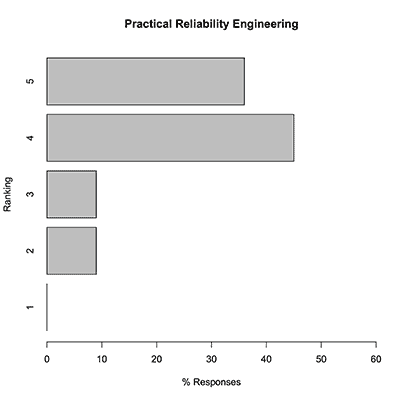
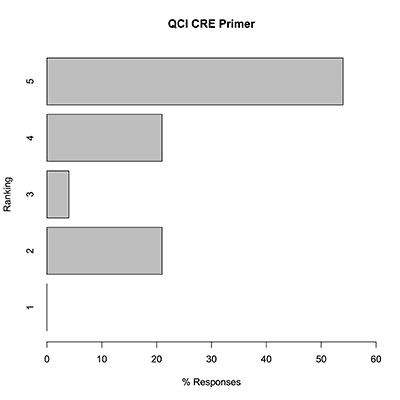
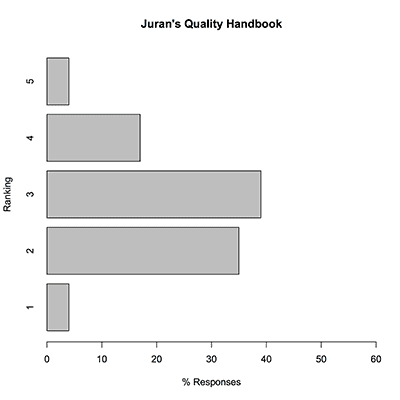
 Ask a question or send along a comment.
Please login to view and use the contact form.
Ask a question or send along a comment.
Please login to view and use the contact form.
Want CRE Primer. Is it possible to share that book??
Sorry I have a copy that I’ll be using to teach a CRE Preparation class starting in January. The book is available from the Quality Council of Indiana. You may want to post your request to borrow a copy on the Linkedin group CRE Preparation, you may be able to find a copy from someone nearby.
Hi Fred,
I also like “Reliability Statistics” from Robert A. Dovich
It is a small book, but very nice when explaining topics to other people.
And I overlooked it in the “Product Reliability” section
Hi Tim, it is a nice book, yet tends to focus on MTBF a bit too much for my taste. cheers, Fred
I agree with top two choices, CRE Primer and Practical Reliability Engineering (new 5th edition) and used them when taking CRE exam. CRE Primer practice exams and instructor guide are very helpful for preparation. I have the CRE Handbook, but have not used it for exam, but it is a nice concise reference.
I missed your survey due to access problems for Ascendo Reliability site. Thank you.
Thanks for the input John, I’ll add it to the survey. And when I get home from this trip I’ll sort out your access to the site. In the mean time if there’s anything you’re seeking let me know.
Cheers,
Fred